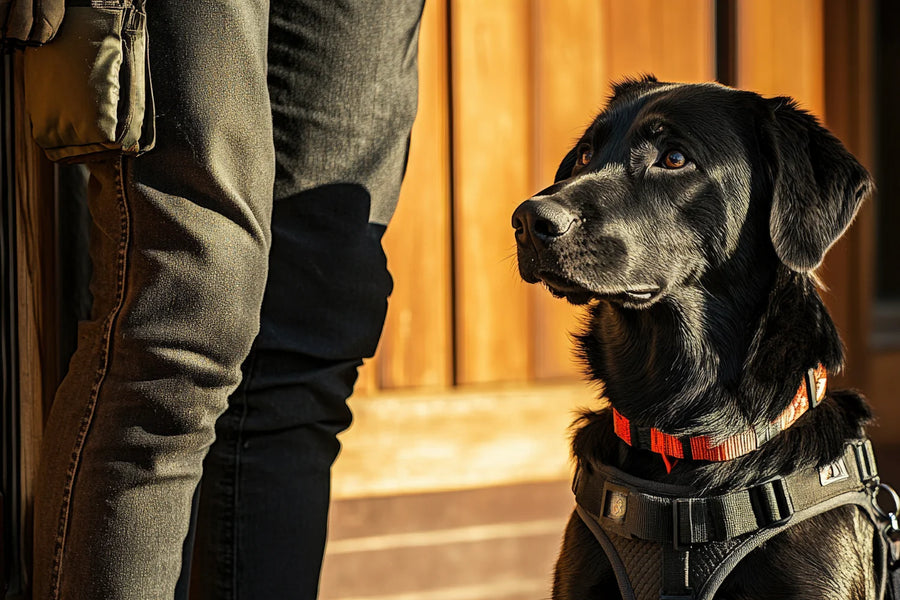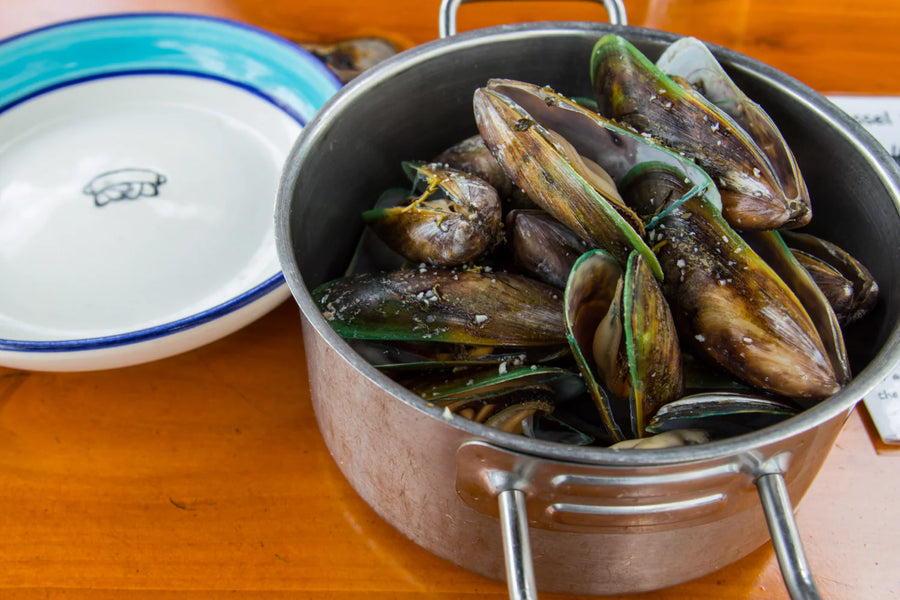The information contained within this blog is not intended to serve as a substitute for professional veterinary advice. When introducing new items into your pet’s diet, consult with your veterinarian.
As our dogs grow older, they still look to us with those same loving eyes, even if there’s a bit more gray around the muzzle. At Pet HealthWorks, we believe every pup in their senior years should be met with just as much care and attention as when they were puppies. But what does that care look like when it comes to what's in their food bowl?
If you’ve noticed your dog isn’t as spry as they used to be, the right nutrition can play a big part in keeping them healthy. Interested in discovering more? This article offers 11 tips to support your senior dog’s health and happiness.
1. Cut the Calories (Without Cutting the Nutrition)
Your senior dog probably isn't running around like they used to, so they don’t need as many calories. But less activity doesn’t mean they should miss out on essential nutrients.
Opt for a diet that’s lower in calories but still packed with everything they need to stay healthy. You can find commercial dog foods made specifically for weight management, or you can swap a portion of their normal meal with dog-safe vegetables to cut calories.
Keeping their weight in check helps ease stress on aging joints and keeps them feeling light on their paws.
2. Boost the Protein
Muscle mass tends to decline as dogs get older, which makes high-quality protein even more important. Muscle is important to protect your dog’s joints as they age, keeping them moving longer and more comfortably.
Look for protein-rich foods that are easy to digest — think beef, turkey, or fish. These help your dog maintain strong muscles without overworking their aging digestive system.
3. Go Easy on the Stomach
Older dogs can develop more sensitive stomachs, so switching to easily digestible foods can make a big difference. Look for commercial dog foods that are labeled as “Limited Ingredient” or take a closer look at the ingredient panel.
If you feed non-conventional or homemade food to your dog, opt for foods like yogurt, brown rice, or boiled chicken that are gentle on their system while still delivering the nutrients they need to stay strong and healthy. Avoid fillers and unnecessary additives that could cause digestive upset.
4. Add Joint-Supporting Supplements
As dogs age, their joints can start to stiffen, making movement more difficult. This is where supplements can help. Adding omegas or joint-supportive supplements to their diet can help maintain joint health and keep them moving comfortably.
For an extra boost, try Antinol Plus. It’s a blend of green-lipped mussel and krill oil that promotes a healthy inflammatory response, supporting your senior dog’s mobility and keeping them active for longer.
5. Incorporate Fiber for Digestive Health
A little extra fiber can work wonders for a senior dog's digestion. Foods like pumpkin, sweet potatoes, and oats are excellent sources of natural fiber that help regulate bowel movements and prevent constipation, which becomes more common in older dogs. Just be sure to introduce fiber gradually to avoid any sudden digestive changes.
6. Stay Hydrated With Wet Foods
Older dogs can sometimes struggle with staying hydrated, especially if they’re less inclined to drink water. Wet food is a great way to add moisture to their diet. You can also mix a little water or low-sodium broth into their meals. Proper hydration supports everything from kidney function to digestion, so keeping their water intake up is key as they age.
7. Prioritize Antioxidants
Antioxidants help combat oxidative stress, which can lead to cell damage over time. As the basis of their body, cell health is incredibly important. From immunity to joint comfort and digestion, keeping their cells functioning at their best is key.
Look for foods rich in antioxidants like blueberries, spinach, or even certain specially formulated senior dog foods that contain these ingredients. Antioxidants help support immune function and keep your dog feeling good from the inside out. Antinol Plus includes a powerful antioxidant, Astaxanthin, which can help soothe irritation in the joints and support their overall health and comfort.
8. Smaller, More Frequent Meals
Senior dogs can benefit from smaller, more frequent meals throughout the day. This helps with digestion and prevents overeating in one sitting, which can lead to discomfort or weight gain. It’s also a great way to maintain their energy levels and keep them satisfied without overwhelming their digestive system.
9. Tailor Treats to Their Age
Not all treats are created equal, and for senior dogs, hard, crunchy treats might be difficult to chew if their teeth or gums aren’t what they used to be. This is especially true if they are experiencing any dental issues.
Opt for softer, low-calorie treats that are easier to chew and won’t overload them with unnecessary calories. Consider healthy alternatives like small pieces of cooked veggies (green beans or steamed carrots) that are easy on their teeth and provide added nutrients.
10. Check for Food Allergies or Sensitivities
As dogs grow older, they might become more sensitive to certain foods that didn't bother them before. Keep an eye on how your dog reacts after meals.
Signs of food sensitivities can include itching, digestive upset, or lethargy. If you suspect food sensitivity, consult your veterinarian, who can help you identify the culprit and suggest alternative options to keep your dog comfortable and healthy.
11. Make Meals From Scratch
Last but not least, when it comes to feeding your senior dog, don't overlook the power of a good, old-fashioned home-cooked meal. While commercial dog foods are convenient, whipping up a homemade dish tailored for your aging companion can offer a comforting boost to their health.
Use lean meats, kidney-friendly veggies like cucumbers or zucchini, and easy-to-digest carbs like oatmeal. Cooking for your dog lets you control the ingredients to avoid anything that might irritate their stomach or exacerbate health issues. Just be sure to check with your vet for the right balance to meet their specific nutritional needs.
A Final Word
At Pet HealthWorks, we know that caring for an older dog is all about understanding their changing needs. As your dog ages, adjusting their diet and incorporating supplements like Antinol Plus can support their quality of life. Our goal is to provide you with straightforward, effective solutions that help your dog stay active and comfortable throughout their senior years.
For more guidance on keeping your senior dog healthy and happy, visit us at Pet HealthWorks. Here’s to many more joyful years with your beloved companion!
Sources:
Age related skeletal muscle atrophy and upregulation of autophagy in dogs | ScienceDirect
Best Dog Food for Sensitive Stomachs | American Kennel Club
What Is Fiber and Why Does Your Dog Need it in Their Diet? | AKC




